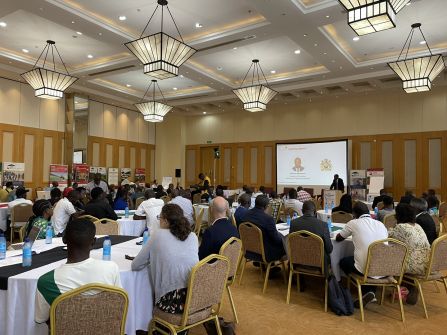SEED: Boosting Eco-Inclusive Enterprises for Climate Adaptation in Southern Africa
| Date |
Date
|
SEED Evaluation and Impact
The SEED "Boosting Eco-Inclusive Enterprises for Climate Adaptation in Southern Africa" project, funded by the Government of Flanders, has concluded this year, marking a significant milestone in our efforts to support sustainable development across the region. Over the past four years, the project has empowered 110 enterprises in Malawi, Zambia, and Botswana to adopt and implement climate adaptation practices. These enterprises have not only enhanced their operational resilience but have also contributed to the broader community by developing innovative products such as organic fertilizers and solar energy solutions. This initiative has been pivotal in demonstrating the viability and importance of eco-inclusive business models in addressing climate change challenges. 83% of participating enterprises have adopted at least one additional climate adaptation practice. This achievement underscores the effectiveness of the support and resources provided through the project, which included technical assistance, business development services, and financial grants. By focusing on sectors such as renewable energy, sustainable agriculture, and waste management, the project has fostered a culture of innovation and sustainability, encouraging enterprises to integrate environmentally friendly practices into their operations. Looking ahead, the lessons learned from this project will continue to inform future initiatives. As we close this chapter, SEED remains committed to nurturing eco-inclusive enterprises and supporting them in their journey towards sustainability.
Highlights from the SEED Malawi National Dialogue Forum
This year, the SEED Malawi National Dialogue Forum celebrated a decade of driving impact through eco-inclusive partnerships and innovation. The forum brought together over 100 entrepreneurs, policymakers, and stakeholders from Malawi, Zambia, and Botswana to reflect on the role of small and medium-sized enterprises (SMEs) in fostering sustainable economic growth. The discussions highlighted the critical role that SMEs play in creating jobs and supporting economic development, particularly in the context of climate change resilience. Keynote speakers at the event emphasized the importance of eco-inclusive entrepreneurship in achieving national development goals, such as Malawi's Vision 2063. They highlighted the need for continued support and investment in SMEs to enable them to scale their operations and contribute to a more sustainable economy. The forum also provided a platform for sharing best practices and exploring new opportunities for collaboration among various stakeholders. One of the significant outcomes of the forum was a panel discussion on enabling green finance for SMEs. The discussion addressed the challenges that SMEs face in accessing finance, such as high interest rates and collateral requirements, and explored potential solutions to these barriers. The dialogue underscored the importance of building trust between SMEs and financial institutions to facilitate better access to finance and support the growth of eco-inclusive enterprises.

TVET Training and Empowering Youth through Innovation
The SEED TVET workshops in Malawi have been a cornerstone of our efforts to enhance the skills and capacities of educators and entrepreneurs in the region. These workshops have focused on equipping participants with the knowledge and tools needed to integrate eco-inclusive entrepreneurship in curricula. By providing hands-on training in areas such as customer analysis, marketing strategies, and resilience building, the workshops have empowered TVET staff to support students in developing sustainable business models. In addition to this, and in collaboration with CRS, SEED has supported Lilongwe Technical College and Namitete Technical College in establishing incubation centers at their colleges to provide support to primarily students, but also to the surrounding community. The first incubation workshops have taken place and provided young entrepreneurs with the tools and support needed to turn their innovative ideas into viable business ventures. This initiative has been instrumental in bridging the gap between education and industry, ensuring that young innovators are equipped with the skills and knowledge required to succeed in the competitive business landscape. The training programme has focused on key areas such as sustainable agriculture, green technologies, and business model development. By fostering a culture of innovation and entrepreneurship, SEED aims to empower the next generation of leaders to drive positive change and create a more sustainable future for all.
Catalyser and Accelerator Programmes
The Catalyser and Accelerator programmes have been pivotal in supporting enterprises with climate adaptation business models. Over the past years, these programmes have provided tailored support to more than 30 enterprises, with a significant focus on empowering women-led businesses. This targeted approach has been essential in helping enterprises refine their strategies, improve their operational efficiency, and access necessary funding. Through tailored advisory services, workshops, and financial grants, the Catalyser and Accelerator programmes have enabled enterprises to enhance their business models and become more investment ready. The support has also facilitated the development of new products and services that address climate change challenges, contributing to increased resilience and sustainability in the adaptation space. As we conclude this year's programmes, we are proud of the achievements of our participating enterprises and the impact they have made in their communities. The success of the Catalyser and Accelerator programmes underscores the importance of providing targeted support to eco-inclusive enterprises and highlights the potential for these businesses to drive meaningful change in the fight against climate change.

